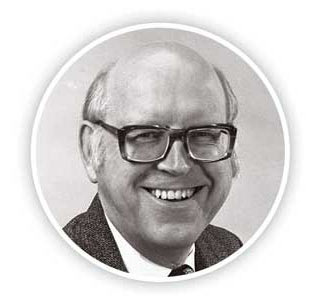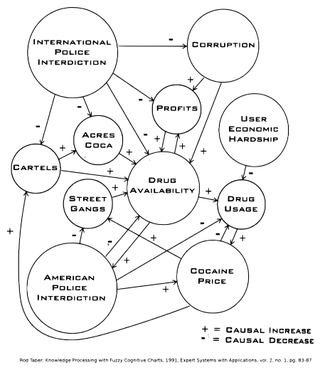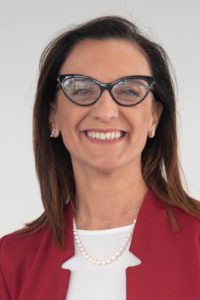Fuzzy logic is a form of many-valued logic in which the truth value of variables may be any real number between 0 and 1. It is employed to handle the concept of partial truth, where the truth value may range between completely true and completely false. By contrast, in Boolean logic, the truth values of variables may only be the integer values 0 or 1.

Lotfi Aliasker Zadeh was a mathematician, computer scientist, electrical engineer, artificial intelligence researcher, and professor of computer science at the University of California, Berkeley. Zadeh is best known for proposing fuzzy mathematics, consisting of several fuzzy-related concepts: fuzzy sets, fuzzy logic, fuzzy algorithms, fuzzy semantics, fuzzy languages, fuzzy control, fuzzy systems, fuzzy probabilities, fuzzy events, and fuzzy information. Zadeh was a founding member of the Eurasian Academy.

Allen Newell was an American researcher in computer science and cognitive psychology at the RAND Corporation and at Carnegie Mellon University's School of Computer Science, Tepper School of Business, and Department of Psychology. He contributed to the Information Processing Language (1956) and two of the earliest AI programs, the Logic Theorist (1956) and the General Problem Solver (1957). He was awarded the ACM's A.M. Turing Award along with Herbert A. Simon in 1975 for their contributions to artificial intelligence and the psychology of human cognition.
The expression computational intelligence (CI) usually refers to the ability of a computer to learn a specific task from data or experimental observation. Even though it is commonly considered a synonym of soft computing, there is still no commonly accepted definition of computational intelligence.
Bart Andrew Kosko is a writer and professor of electrical engineering and law at the University of Southern California (USC). He is a researcher and popularizer of fuzzy logic, neural networks, and noise, and the author of several trade books and textbooks on these and related subjects of machine intelligence. He was awarded the 2022 Donald O. Hebb Award for neural learning by the International Neural Network Society.

Sankar Kumar Pal is a computer scientist and the president of the Indian Statistical Institute (ISI), Kolkata. He is also a National Science Chair, Government of India. Pal is a computer scientist with an international reputation on pattern recognition, image processing, fuzzy neural network, rough fuzzy hybridization, soft computing, granular mining, and machine intelligence. He pioneered the development of fuzzy set theory, and neuro-fuzzy and rough-fuzzy computing for uncertainty modelling with demonstration in pattern recognition, image processing, machine learning, knowledge-based systems and data mining. This has made him widely recognized across the world and made India a leader in these disciplines in international scenario. He founded the Machine Intelligence Unit in 1993, and the Center for Soft Computing Research: A National Facility in 2004, both at the ISI. In the process he has created many renowned scientists.
Krassimir Todorov Atanassov is a Bulgarian mathematician, Corresponding member of the Bulgarian Academy of Sciences (2012). He is best known for introducing the concepts of Generalized nets and Intuitionistic fuzzy sets, which are extensions of the concepts of Petri nets and Fuzzy sets, respectively.
John Yen is Professor of Data Science and Professor-in-Charge of Data Science in the College of Information Sciences and Technology at Pennsylvania State University. He currently leads the Laboratory of AI for Cyber Security at Penn State. He was the founder and a former director of the Cancer Informatics Initiative there.

A fuzzy cognitive map (FCM) is a cognitive map within which the relations between the elements of a "mental landscape" can be used to compute the "strength of impact" of these elements. Fuzzy cognitive maps were introduced by Bart Kosko. Robert Axelrod introduced cognitive maps as a formal way of representing social scientific knowledge and modeling decision making in social and political systems, then brought in the computation.

George Jiří Klir was a Czech-American computer scientist and professor of systems sciences at Binghamton University in Binghamton, New York.
IEEE Intelligent Systems is a bimonthly peer-reviewed academic journal published by the IEEE Computer Society and sponsored by the Association for the Advancement of Artificial Intelligence (AAAI), British Computer Society (BCS), and European Association for Artificial Intelligence (EurAI).
The IEEE Frank Rosenblatt Award is a Technical Field Award established by the Institute of Electrical and Electronics Engineers Board of Directors in 2004. This award is presented for outstanding contributions to the advancement of the design, practice, techniques, or theory in biologically and linguistically motivated computational paradigms, including neural networks, connectionist systems, evolutionary computation, fuzzy systems, and hybrid intelligent systems in which these paradigms are contained.

Rudolf Kruse is a German computer scientist and mathematician.
In computer science, an evolving intelligent system is a fuzzy logic system which improves the own performance by evolving rules. The technique is known from machine learning, in which external patterns are learned by an algorithm. Fuzzy logic based machine learning works with neuro-fuzzy systems.

Witold Kosiński was a Polish mathematician and computer scientist. He was the lead inventor and main propagator of Ordered Fuzzy Numbers.

Janusz Kacprzyk is a Polish engineer and mathematician, notable for his contributions to the field of computational and artificial intelligence tools like fuzzy sets, mathematical optimization, decision making under uncertainty, computational intelligence, intuitionistic fuzzy sets, data analysis and data mining, with applications in databases, ICT, mobile robotics and others.

Ismat Beg, FPAS, FIMA, is a Pakistani mathematician and researcher. Beg is a professor at Lahore School of Economics, Higher Education Commission Distinguished National Professor and an honorary full professor at the Mathematics Division at the Ruggero Santilli Institute for Basic Research, Florida, US. He has an enthusiastic and interactive teaching style and is famous for saying “please come on the board” when posed with a question in class. This helps uplift the students’ confidence.
Enrique Herrera Viedma is the Vice-Rector for Research and Knowledge Transfer at the University of Granada (UGR), Spain. He is also Professor in Computer Science and Artificial Intelligence at the same university since 1994.
Bernadette Bouchon-Meunier is a retired French computer scientist specializing in fuzzy logic. She is a director of research, emeritus, for the French National Centre for Scientific Research (CNRS), the former head of the Department of Databases and Machine Learning (DAPA) in LIP6, a computer science laboratory operated jointly by CNRS and Pierre and Marie Curie University, editor-in-chief of the International Journal of Uncertainty, Fuzziness and Knowledge-Based Systems, and a past president of the IEEE Computational Intelligence Society.

Mariagrazia Dotoli is an Italian systems engineer and control theorist whose research involves the optimization of supply chain management and traffic control in smart cities, fuzzy control systems, and the use of Petri nets in modeling these applications as discrete event dynamic systems. She is Professor in Systems and Control Engineering in the Department of Electrical and Information Engineering at the Polytechnic University of Bari.










